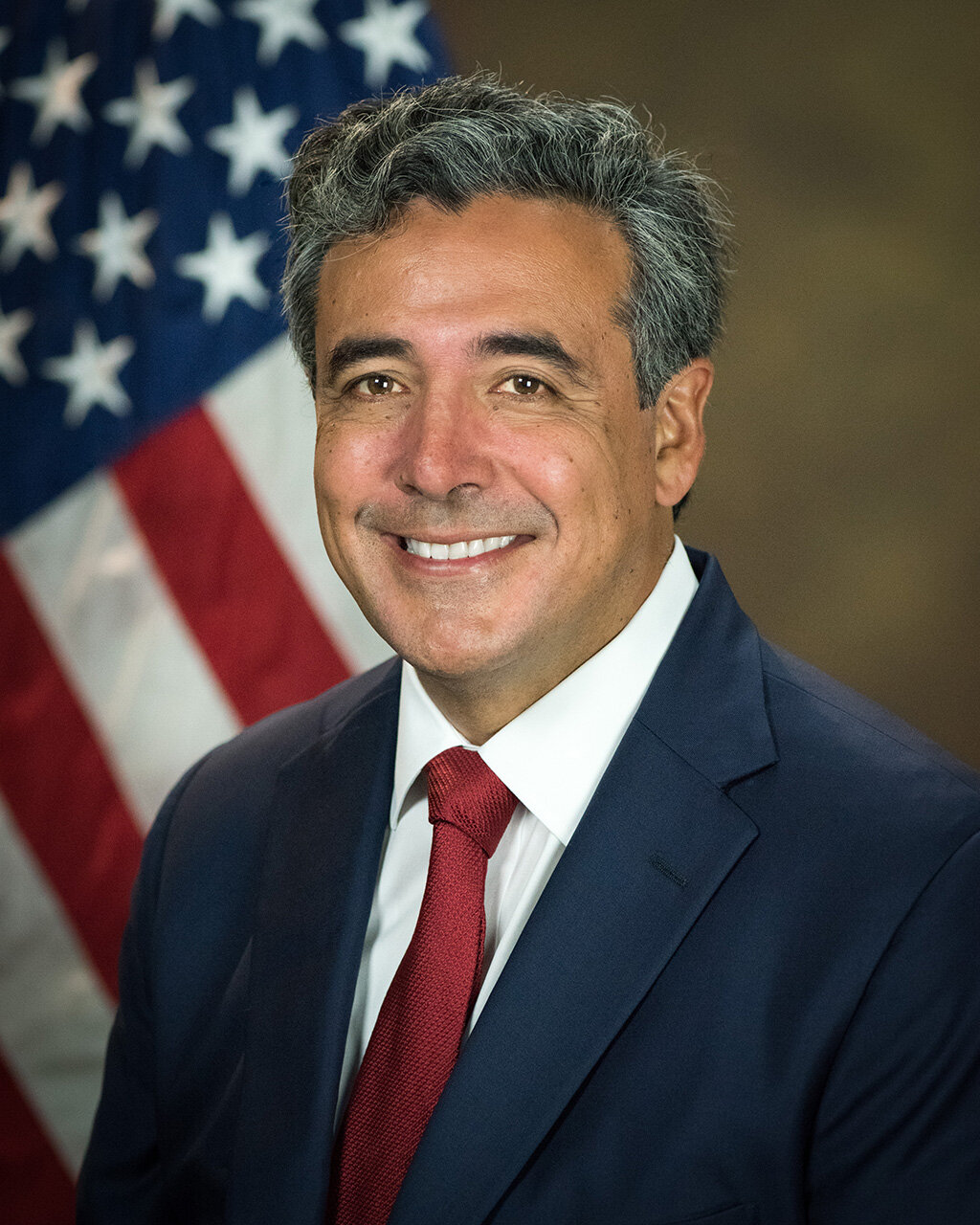A Fireside Chat with Former Solicitor General Noel Francisco
Devon Chenelle ‘23
Staff Editor
On Wednesday, February 3rd, the UVA Law Federalist Society hosted “A Fireside Chat with Former Solicitor General Noel Francisco.” For the event, Professor Scott Ballenger (BA ’93, JD ’96) interviewed Mr. Francisco on his wide-ranging career.
Professor Ballenger began the talk by introducing Mr. Francisco, noting they met “25 years ago,” in “Justice Scalia’s chambers” while serving together as co-clerks. Appropriately enough, the talk began with a recollection of Mr. Francisco’s time as Scalia’s clerk. Francisco described a situation when Justice Scalia “had written a dissenting opinion . . . a classic Scalia dissenting opinion,” and gave it to his clerks to look at. The clerks told the Justice “if you tone down the rhetoric, you might get other justices to join it.” But when Scalia gave a re-draft of his opinion to the clerks, he had “actually jacked up the rhetoric,” remembered Francisco, as Scalia said “sometimes, I’ve just gotta be me.” That, Francisco said, is his “favorite story of Justice Scalia, and what probably epitomizes what he’s about.”
Explaining Scalia’s reasoning, Francisco noted that Scalia was “engaging in a debate across time,” and “his goal was to persuade others.” As proof of Scalia’s success, Francisco explained that at the start of Scalia’s tenure “he was one of the only strict textualists on the court,” and “now there’s probably a textualist majority of five.”
Pictured: Former Solicitor General Noel Francisco reflected on experiences working in the government, private sector, and clerking for Justice Scalia. Photo Courtesy of en.wikipedia.org
After a few years in the private sector, Francisco was selected for a position in the Bush administration, which he described as “one long stint, with two jobs.” The first of those jobs was as Associate Counsel to President Bush in the Office of Counsel to the President. Francisco said, “What’s exciting about working in the White House’s counsel office, you’re in the middle of the action.” Francisco noted that “the best place to hang out in the West Wing was right outside of Karl Rove’s doors,” because “Rove would have a line of celebrities walking in and out.” During that time he met Bono and Bruce Willis.
After working in the Office of Counsel to the President, Francisco moved to the Office of Legal Counsel, which involved fascinating legal work. He highlighted a case involving an inquiry into whether “an appointment at the Vatican violated the foreign emoluments clause,” where “it was a really interesting set of issues that in all those years had not gotten any significant treatment from OLC or from anyone else.”
Mr. Francisco began working for the White House again when he was appointed Principal Deputy Solicitor General for the United States on January 23, 2017, and was confirmed by the Senate as the Solicitor General on September 19, 2017. Mr. Francisco described the Solicitor General’s office as the “entity within the DOJ that represents the U.S. in almost all cases before SCOTUS,” but, he noted “it can play a much broader role within the Executive Branch, as basically, the Department looks to the Solicitor General to provide advice on how to pursue the major pieces of litigation being carried on on behalf of the federal government.” He described his role as the Solicitor General as seeing “whether these policy positions can be reasonably defended,” and asking whether there is “a reasonable argument I can make to defend the president’s policies.”
In addition to his extensive background working for the government, Mr. Francisco also has an impressive track record in the private sector, where he currently works as a partner at Jones Day. Reflecting on the differences between the private and public sectors, Francisco said, “I think when you’re in private practice, you have the opportunity to see a much broader range of issues,” because “often in government your position and strategy is locked in,” while “when you’re on the private side, you have to be a lot more creative.”
Mr. Francisco concluded his talk with advice for young lawyers on finding a balance between your work and personal life. “I think that the most important thing for every lawyer to do is to understand who the client is and how to serve that client,” said Francisco And, “When you’re a young lawyer, your clients really are the more senior lawyers you’re working for, [and] your job is to make them look good.”
The most successful attorneys, Francisco thinks, “Are those who understand the role they’re supposed to play.” Lastly, Francisco noted that despite his successful and high intensity career, he has still been able to strike a balance. “You know, I work hard, but I don’t think it’s been unmanageable,” said Francisco, noting, “I go to my children’s sporting events, I go golfing once or twice a week with my daughter,” and “I think clients recognize we need to have lives as well.” This law student found those to be inspiring words from someone far busier and more successful than himself, and hopes others will find them helpful as well.
---
dnc9hu@virginia.edu

